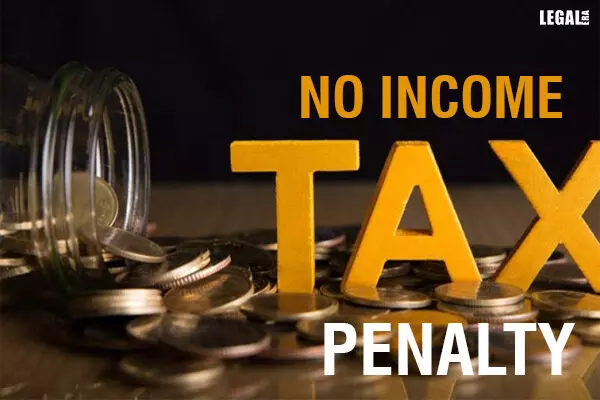- Home
- News
- Articles+
- Aerospace
- Agriculture
- Alternate Dispute Resolution
- Banking and Finance
- Bankruptcy
- Book Review
- Bribery & Corruption
- Commercial Litigation
- Competition Law
- Conference Reports
- Consumer Products
- Contract
- Corporate Governance
- Corporate Law
- Covid-19
- Cryptocurrency
- Cybersecurity
- Data Protection
- Defence
- Digital Economy
- E-commerce
- Employment Law
- Energy and Natural Resources
- Entertainment and Sports Law
- Environmental Law
- FDI
- Food and Beverage
- Health Care
- IBC Diaries
- Insurance Law
- Intellectual Property
- International Law
- Know the Law
- Labour Laws
- Litigation
- Litigation Funding
- Manufacturing
- Mergers & Acquisitions
- NFTs
- Privacy
- Private Equity
- Project Finance
- Real Estate
- Risk and Compliance
- Technology Media and Telecom
- Tributes
- Zoom In
- Take On Board
- In Focus
- Law & Policy and Regulation
- IP & Tech Era
- Viewpoint
- Arbitration & Mediation
- Tax
- Student Corner
- AI
- ESG
- Gaming
- Inclusion & Diversity
- Law Firms
- In-House
- Rankings
- E-Magazine
- Legal Era TV
- Events
- News
- Articles
- Aerospace
- Agriculture
- Alternate Dispute Resolution
- Banking and Finance
- Bankruptcy
- Book Review
- Bribery & Corruption
- Commercial Litigation
- Competition Law
- Conference Reports
- Consumer Products
- Contract
- Corporate Governance
- Corporate Law
- Covid-19
- Cryptocurrency
- Cybersecurity
- Data Protection
- Defence
- Digital Economy
- E-commerce
- Employment Law
- Energy and Natural Resources
- Entertainment and Sports Law
- Environmental Law
- FDI
- Food and Beverage
- Health Care
- IBC Diaries
- Insurance Law
- Intellectual Property
- International Law
- Know the Law
- Labour Laws
- Litigation
- Litigation Funding
- Manufacturing
- Mergers & Acquisitions
- NFTs
- Privacy
- Private Equity
- Project Finance
- Real Estate
- Risk and Compliance
- Technology Media and Telecom
- Tributes
- Zoom In
- Take On Board
- In Focus
- Law & Policy and Regulation
- IP & Tech Era
- Viewpoint
- Arbitration & Mediation
- Tax
- Student Corner
- AI
- ESG
- Gaming
- Inclusion & Diversity
- Law Firms
- In-House
- Rankings
- E-Magazine
- Legal Era TV
- Events
ITAT penalizes assessee for not cooperating with the assessing officer

ITAT penalizes assessee for not cooperating with the assessing officer
Directs him to deposit Rs.10,000 in the Prime Minister's Relief Fund
The Ahmedabad bench of the Income Tax Appellate Tribunal (ITAT) has held that ill health and transfer to a new place constitutes 'reasonable cause' for the delay in filing an appeal.
The tribunal made the observation on an assessees' appeal against the December 2015 order passed by the Commissioner of Income Tax (Appeals). Under the Income Tax Act, 1961 relating to the Assessment Year 2010-11, a penalty was levied on the assessee, who then approached ITAT.
The assessee is a senior citizen and a retired employee of the Oil and Natural Gas Commission Limited. He derives income from salary, housing property and other sources. He did not file the Income Tax Return (ITR), following which a notice was issued to him in December 2012.
Thereafter, the assessee filed the ITR declaring a total income of Rs.17,26,770 and paid taxes of Rs.4,66,323, claiming a refund of Rs. 6,389.
On being summoned to explain the investment of Rs.3,45,00,000 and Rs.24,23,192 in mutual funds including Sundaram BNP Paribas and Birla Sunlife, a tax demand of Rs.45,28,230 was imposed on him by the assessing officer (AO). The officer determined the total income at Rs.1,16,43,370 on account of unexplained investments in mutual funds and Rs.40,18,534 as unexplained money deposited in Axis Bank, HDFC Bank, and State Bank of India, along with the CPB interest of Rs. 24,872.
Aggrieved by the order, the assessee filed an appeal before the CIT(A), who dismissed the appeal. It was done on the ground that despite being given opportunities, the assessee was non-cooperative with the department. His conduct was contrary to his investment pattern in various mutual funds.
However, the tribunal ruled: "Considering the ill-health of the assessee and transfer of his residence to New Delhi, we find that he was sufficiently prevented from not furnishing the documents to the AO."
The bench further stated, "To meet the ends of justice, we set aside the case to the file of the AO and give one more opportunity to the assessee to explain his case with additional evidence. But he is fined Rs.10,000 for not cooperating with the AO. The penalty amount must be deposited with the Prime Minister's Relief Fund."




